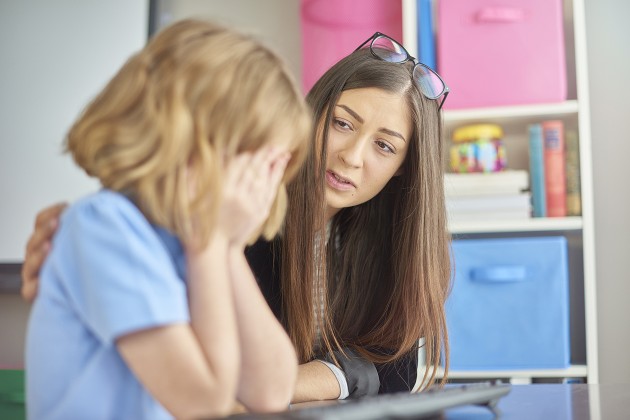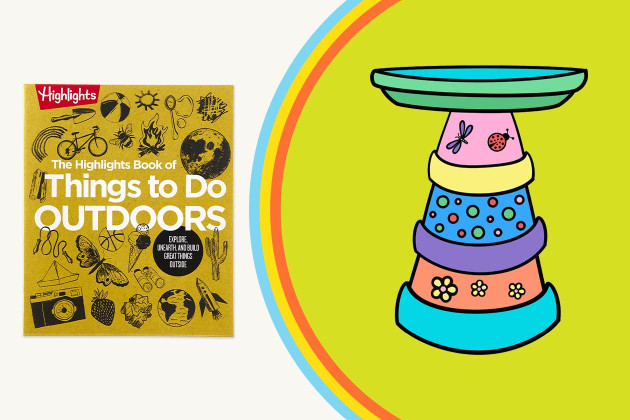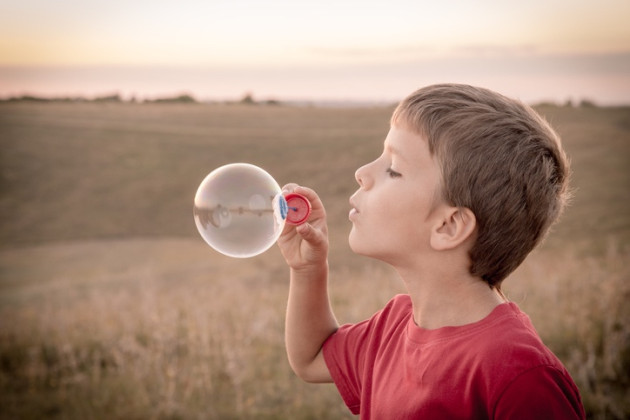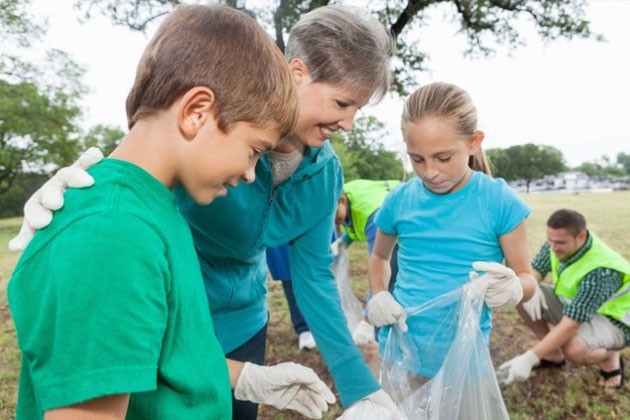Dear Highlights Podcast: How Do I Deal With An Anxious Child?

In this “Dear Highlights” podcast Editor-in-Chief Christine French Cully and her guest, educational psychologist Michele Borba, EdD, discuss how the pandemic has affected children as their worlds turned upside down, and how parents can nurture optimism in their kids as we move to a new normal.
Throughout the pandemic, kids have tackled distance learning, face-mask wearing, social distancing, and more. With that, many children worried about parents who were front-line workers or about the health of their elderly grandparents. One recurring theme was the anxiety kids felt due to the pandemic. Now that the world is opening up, how will kids feel about the future? Additionally, how can the grown-ups who love them best guide them to have a sense of optimism?
During this discussion, Dr. Borba, author of the new book, Thrivers, and TODAY show contributor, offers sound, realistic advice to parents, teachers, and advocates for children about helping children thrive.
“Let’s all lean in to give kids what they really need and want: more listening, more understanding, and more connecting.”
Christine starts by sharing that kids often write to express their feelings of stress and anxiety. There’s been uptick in these kinds of letters since the start of the pandemic. For example, Ava, a 10-year-old from Washington States, wrote:
“…My issue is that every time someone in my family gets sick or gets Covid-related symptom, I worry that they have Coronavirus and they might have to go to the hospital. What can I do to calm down a bit?”
It’s letters like these that drive conversations about instilling optimism and resiliency into the lives of children to make sure they have the tools to thrive.
Christine asks Dr. Borba to define optimism. Dr. Borba explains that it’s the sense of a silver lining that there’s some hope out there, but she adds it doesn’t mean that children don’t recognized there’s conflict or unsettling times. She pinpoints that kids who thrive and are optimistic through difficult times have two important things in their lives:
- a grownup who’s a caring champion—someone who refuses to give up on the child—which gives them a sense of security and trust.
- protective factors and coping skills they can use when difficulty arises—the child knows how to handle the situation because they have the correct tools.
Optimism can be learned, Dr. Borba adds. She shares that “resilience—the ability to thrive—is not locked into a child’s DNA or temperament. …Each kid has the ability to learn some skills…and [grown-ups can] give them a repertoire of [coping skills] to help figure out what works.”
“Resilient parents raise resilient kids.”
Dr. Borba says that it’s important to “always give kids a voice—allow them to share their grief, their concerns without judging them.” She notes that it’s important to model sharing your feelings so that it’s normalized. This is a gateway to help learn optimism. Verbalizing their feelings will help children be more likely to come to you when they’re feeling stressed or anxious.
To help achieve a healthy discourse around emotions, Dr. Borba recommends watching movies and reading books that discuss feelings (e.g., Inside Out and Wonder). Books and movies can be a great conversation starter. Christine adds that grown-ups sometimes have to be intentional in creating an environment where feelings can be discussed openly. Dr. Borba adds that it’s OK for adults to say that they don’t have all the information or answers and that they’ll keep the discussion open so they can add more information later.
Another piece of advice Dr. Borba provides is about having a positive family mantra or motto. She notes that it could be as simple as “you’ve got this” or “you can do it.” These simple phrases combat pessimism and help children work through stressful times. Dr. Borba shares, “Your outer voice can become your child’s inner voice.”
Once adults have provided a safe space for discussions and laid the groundwork for an optimistic attitude, Dr. Borba explains that it’s important to help children identify what makes them stressed or anxious. She says that it can be as simple as saying, “When I see you start your math assignment, I see you grinding your teeth.” This helps children identify how their bodies give them warning signs about stress. Listening to these signs can signal when calming strategies should be employed.
Dr. Borba and Christine both point out that it’s important for adults to identify their stressors as well and note that it’s likely that children are already picking up on them. Christine adds, “Kids are sponges, and I think we forget sometimes that kids are watching us…And so much is ‘caught, rather than taught’ for so much of what kids learn.”
Dr. Borba recommends creating nonverbal calm-down signals, such as pulling your ear or putting your arms straight out. These signals can serve as a universal sign between children and their grown-ups that space is needed to calm down or process big emotions.
Christine adds that managing stress and anxiety involves a lot of small things that can make all the difference. Dr. Borba expands on that, saying it’s small, positive things that are repeated and that become “so practiced that a child can do them without their grown-ups help.” Kids will have control over their own lives because they’ve been taught simple, little things that help them thrive.
Despite all the bests effort to instill optimism and resilience, there are children who will still struggle. Christine asks Dr. Borba what are signs to look for and how to know when a child needs professional help. Dr. Borba suggests using the “too index.” Watch your child a little closer when they’ve developed an unhealthy new behavior and ask yourself:
- Is the behavior lasting too long, longer than 2 weeks?
- Are your own red flags up too much?
Each podcast ends with Christine asking the guest this question: Children are the world’s most important people, and if we as a global society really believe that, are there things that we would do differently or better to create an environment where these seeds of optimism we’re trying to plants in kids can grow and thrive?
Dr. Borba answers by explaining, “Kids need a different set of skills that’s different from knowledge. It’s the skills on how to cope and thrive with life. Those are teachable. Those are the seeds of resilience. You want a happy, healthy child? You want a kid who really is successful, who is a peak performer? Those are the skills they’re going to need…use simple, little everyday strategies and keep doing them until [a] kid can thrive [on their own]. Those are the seeds to good parenting.”
Dear Highlights addresses the issues around being a kid today and offers parents expert advice to help raise their children to be their best selves. Tune in wherever you listen to your favorite podcasts! We launch a new episode every Tuesday morning.









